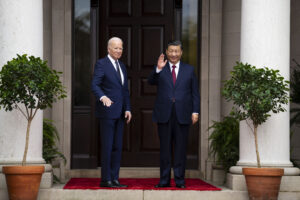Nearly $1 Trillion Left Emerging Markets in Single Year in ‘Capital Flight’ Phenomenon
Reports that huge sums of investment money have flowed out of countries with emerging markets suggest that countries once billed as "stars of the post-crash economy are now waning."

Reports that huge sums of investment money have flowed out of countries with emerging markets suggest that countries once billed as “stars of the post-crash economy are now waning,” The Guardian reports.
Official data and estimates by the Netherlands-based investment bank NN Investment Partners show that “total net capital outflows from the 19 largest emerging market economies reached $940.2bn in the 13 months to the end of July,” The Guardian writes. The bank said the figure was almost double the net outflow during the nine months following the 2008 banking collapse.
Investors are taking money out of places like China, where authorities devalued the yuan last week, and into the U.S. and Europe. The same is happening in Indonesia, Thailand and Malaysia, where the national currency is also losing value. Brazil, Mexico and Turkey (where the lira has lost 20 percent of its value against the dollar this year) are bleeding money as well.
Stock markets have tumbled in response. Global trade declined by 8 percent between December 2014 and May 2015.
The Guardian continues:
As their currencies shrink in value, it takes more cash to fund foreign debt payments in dollars. The report shows that emerging markets have spent vast portions of their foreign reserves to meet obligations that were much less onerous only a year before.
Investors quitting emerging markets either sell property and stock market assets or simply take out and repatriate cash from local banks. If returned to the US, that cash might make a lower return but there will be less risk attached. …
The US is already pushing up the value of its currency with anticipation about a rise in domestic interest rates. The Federal Reserve could raise rates within the next couple of months, and though the higher rate is largely factored into currency markets, there will be another boost to the dollar when it happens.
A second rise will probably knock emerging markets further, as the US becomes an even more attractive destination for investment funds. An expected hike in the UK, where Mark Carney, the Bank of England governor, has signalled a move towards 2% starting in the spring, could intensify the pressure further.
Read more here.
— Posted by Alexander Reed Kelly.
Independent journalism is under threat and overshadowed by heavily funded mainstream media.
You can help level the playing field. Become a member.
Your tax-deductible contribution keeps us digging beneath the headlines to give you thought-provoking, investigative reporting and analysis that unearths what's really happening- without compromise.
Give today to support our courageous, independent journalists.






You need to be a supporter to comment.
There are currently no responses to this article.
Be the first to respond.